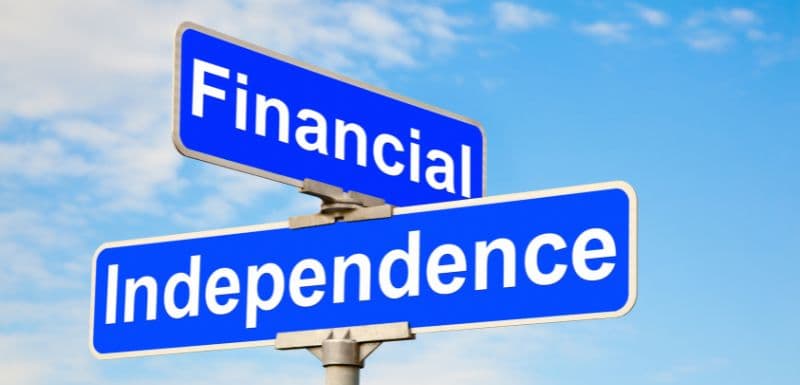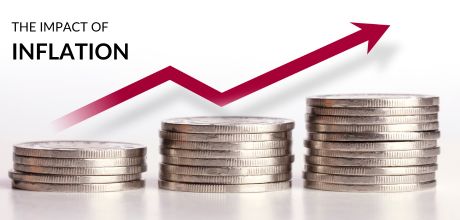What Is Financial Independence and How to Achieve It?

On 15th August, we celebrate Independence Day. We celebrate the spirit of freedom that gives us the right to live a life the way we want to. Have you thought about financial freedom in a similar way? When you achieve financial independence, it gives you more control over your time and further live a life the way you want to. In this article, we will discuss what financial independence is, its benefits, and how to achieve it.
What Is Financial Independence?
Financial independence refers to reaching a financial stage where your current assets can take care of your current and future financial needs, like regular expenses, loans, and financial goals. You no longer need to pursue an active income source and are no longer dependent on others to meet your financial needs.
While attaining financial independence may not require you to pursue active income opportunities, some people attain financial independence to pursue their passion. The passion may include a job or business they always dreamed of or something else. So, even after attaining financial independence, many people continue working (job/business), but it is something they love doing out of choice rather than for money.
Financial independence is known by different names. Some people may refer to it as financial freedom, achieving financial goals, Financial Independence Retire Early (FIRE), becoming debt-free, accomplishing financial responsibilities and liabilities, etc.
Now that we understand what is financial independence, let us look at how to achieve financial independence.
How to Become Financially Independent?
To become financially independent, you may take the following steps.
1) Assess Your Current Financial Situation
The first step in the journey to achieve financial independence is to assess where you stand currently. You can do that by making a cash flow statement and a networth statement.
You can make a cash flow statement by recording all the monthly income sources on one side and the expenses on the other side. The difference between the two will tell you whether you have a cash flow surplus or deficit at the end of the month. If you have a surplus, it is good as you can invest it towards achieving your financial goals.
In the networth statement, you can record all your assets on one side and liabilities on the other side. Assets include what you own, and liabilities include what you owe others. If you have a positive networth, it is good. If you have a negative networth, you should work towards making it positive.
2) Adopt Budgeting
Once you have clarity on your cashflows, you should adopt budgeting wherein you can allocate a specific amount every month for investing towards financial goals. You can start with the 50/30/20 budgeting, wherein you allocate 20% of your monthly income for investing towards your financial goals. If you are not able to set aside 20% income, pay attention to the 30% of income spent on wants (discretionary spends). Check which expenses you can reduce to save money, which can then be invested.
Once you get comfortable saving 20% every month, try and increase the monthly savings rate and redirect the saved money towards investments. Once your savings rate reaches a significantly higher level, you may migrate to Pay Yourself First budgeting. In this budgeting method, an individual invests towards their financial goals first and then the remaining income is spent towards regular expenses.
3) List Financial Goals and Make a Roadmap to Achieve Them
You can consult an investment expert who can help you list down your financial goals, quantify them, and make a goal plan on how to achieve them. The goal plan will include the current cost of the goal, future cost factoring inflation, how much and where to invest, the expected growth rate, etc.
4) Invest Towards Financial Goals and Track Progress
Once you have the goal plan ready, you should start investing. For long-term financial goals where the timeline to achieve them is more than five years, you should invest in equity mutual funds. Equities have the potential to give inflation-beating high returns in the long term. They benefit from the power of compounding and create wealth for investors.
You should sit with an investment expert and track the progress of financial goals once a year. During the review, you should analyse the performance of the investments. If an investment is consistently not performing as expected, the investment expert will recommend an appropriate replacement.
5) Prepayment of Loans
To achieve financial independence, along with planning for your financial goals, you should plan the prepayment of loans. You should have a separate goal plan to prepay long-term loans like home loans.
You should discuss this with the investment expert and set aside some money every month. Once you accumulate a decent amount, you should make the home loan prepayment once every six months to one year. You may redirect your annual bonus or any ad hoc cashflows towards home loan prepayment.
6) Develop Multiple Sources of Passive Income
As you progress in your financial independence journey, you should develop multiple passive income sources. These can include dividends, rent, interest income, etc. In the initial stage, the income contribution from these sources will be small. But, as you build on these income sources, they will grow over a period of time.
If you persist with building them over a long period, someday, they will exceed your active income. Once you reach that stage, you will have made considerable progress in your financial independence journey. At that stage, if you want, you may consider quitting your job.
Now that we have discussed the ways to become financially independent, let us look at its benefits.
Benefits of Achieving Financial Independence
There are a number of benefits of financial independence. One of the biggest benefits includes freeing up your time or gaining control of your time. As discussed earlier, some people pursue financial independence because they are not happy with the profession that they are in. Once they achieve financial independence, they can quit their profession and free up their time.
They can then use that time to pursue their dream job/business. Some people pursue their passion, like taking up a sport, hobby, or some other activity close to their heart. In the case of some people, the preference is to spend time with their family, travel, socialise, etc. Once they achieve financial independence, some people may use their time to give it back to society. They guide other people or get involved in social work or charity/philanthropy.
Achieve Financial Independence and Live Life on Your Terms
Different people have different reasons to pursue financial independence. You need to identify your purpose and start pursuing financial independence. It is a journey that will not happen in one day, but it will definitely happen one day. Once you achieve it, you can celebrate financial freedom on Independence Day along with your other rights.
FAQ's
How Much Do I Need to Accumulate to Achieve Financial Independence?
There is no one number that will help everyone achieve financial independence. Everybody’s financial needs are different. Hence, the financial independence number will differ for everyone. You should consult an investment expert who can provide a customised solution based on your needs. They will list your financial goals and tell you the amount you need to accumulate to achieve financial independence.
How Can I Set My Financial Goals to Achieve Financial Independence?
You should consult an investment expert who can help you identify and set SMART financial goals for you as follows:
S: Specific
M: Measurable
A: Achievable
R: Realistic
T: Timebound
Your Investing Experts
Relevant Articles
Why a Home Purchase Plan is Important – A Home Loan Checklist
Owning a home is more than just a milestone, it’s a financial journey that requires careful planning. A well-structured Home Purchase Plan helps you strategically manage your down payment, home loan, and repayment strategy, ensuring financial stability and peace of mind. With the right investment approach, including SIPs in Mutual Funds, you can efficiently accumulate funds, reduce interest burdens, and achieve debt-free homeownership faster.
The Impact of Inflation on Your Financial Goals
Inflation is the unknown devil that keeps devaluing your savings. We hear about inflation rates in the news, but it’s easy to overlook their significance. While we may notice rising prices in our day-to-day purchases, we often fail to consider how inflation impacts our long-term financial goals. In this article, we’ll uncover the true impact of inflation on your financial journey and share strategies to help you stay ahead of it.
How Can 50/30/20 Budgeting Help Allocate Money Towards Financial Goals
Most people understand the importance of financial planning and desire to invest towards their financial goals. However, some people are not able to do so because, by the end of the month, they are left with little or no money to invest.



